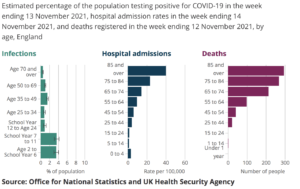Written by: Alberto Giubilini, Julian Savulescu
*A version of this blogpost appears as an article in the Spectator*
Governments are at it again. It has become an involuntary reflex. A few days after South Africa sequenced and identified the new Omicron variant, England placed some South African countries back in the ‘red list’. Quarantine has been imposed on all incoming passengers until they show evidence of a negative test. Some European countries banned incoming flights from that region. Switzerland introduced quarantine for passengers arriving from the UK, but also banned all the unvaccinated passengers from the UK from entering the country. The domino effect we have seen so many times during this pandemic has kicked in again.
Is closing borders ethical? We don’t think so. At the beginning of the pandemic, border closures were, arguably, too little too late. Angela Merkel sealed off Germany’s borders in March 2020 less than a week after having declared that, in the name of solidarity, EU countries should not isolate themselves from one another, as the situation was out of control and extremely uncertain. The UK was also criticized for closing borders and locking down too late. In fact, countries that closed borders relatively early, such as Australia and New Zealand, fared better in terms of keeping the virus at bay.
However, we are at a very different stage of the pandemic now. The disease is endemic, vaccination has been introduced, and we have treatments available. Why do we think the same measures that might have been appropriate in March 2020 are the best response in this very different context?
Read More »Omicron Travel Restrictions Are Not Ethically Justified

